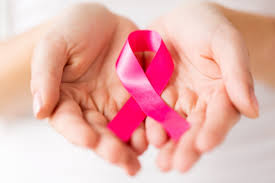After the diagnosis of any illness, patients tend to re-evaluate their nutrition and dietary intake. As with many breast cancer survivors, most often than not, their first thoughts would be what was the trigger of the disease, and what lifestyle changes should be brought about to remain healthy? As with many cancer survivors making significant dietary changes is important to be made to ensure a positive outcome after treatment. A healthy diet coupled with regular exercise, stress management and a strong family and friends support base is important for the overall well-being of the patient and survivors of cancer.
There isn’t a magic diet which will prevent cancer from occurring or returning, however using a cancer few cancer prevention dietary tips can help in decreasing the reoccurrence of breast cancer.
It is very important that patients increase their intake of fruits, vegetables and whole grains. Fresh fruits, vegetables and whole grains are packed with cancer fighting abilities. It is recommended that five or more servings of fruits and vegetables should be taken daily. Vegetables such online casino as broccoli, cauliflower, cabbage, brussels sprouts and mustard greens are rich in phytochemicals which may aid in preventing cancer. Whole grains and unprocessed foods which are high in complex carbohydrates, fiber, vitamins, mineral and phytochemicals should be incorporated in the patient’s diet. Grains would include wheat, oats, rice and barley. Other vegetables that should be included in the diet should be eggplants, pumpkin, squash and onions. Legumes would include soybeans, chickpeas and other dried beans such as mung and kidney. If patients like pickled or cured foods and smoked foods, it is important that they reduce the intake of these items in their diet.
The fat intake on a daily basis should be kept at a minimum. Avoiding the intake of highly saturated fats such as beef, lamb, organ meats, milk by-products like butter cheese and cream. Limit food items that contain trans-fatty acids such as crackers and other commercially bakes goods. What essential is that the increase of poultry, fish and other vegetarian proteins in the patients diet. One should aim for 20 percent of total calories from fat, with less than 10 percent of total calories from saturated fat.
It is vital for patients to maintain a healthy weight during and after treatment is received. For survivors, maintaining a healthy body weight is crucial to their recovery. For obese women, it is recommended that weight loss should be through a healthy diet of five small meals a day with ample quantity of fruits, vegetables and grains and lesser amounts of fats – meat and dairy products and regular exercise.
The body requires adequate amount of fluids to help in the normal functioning of the system. Water assists with carrying nutrients around the systems and aiding in ridding the body of any waste products. It also helps in lubricating and cushioning of the joints. It helps in maintain the required body temperature and blood volume. In addition, the body needs more fluid when eating a high-fiber diet.








